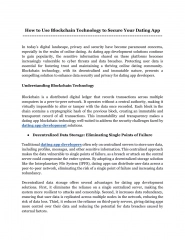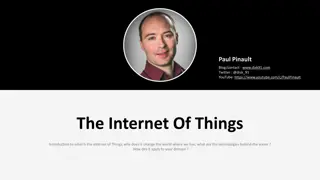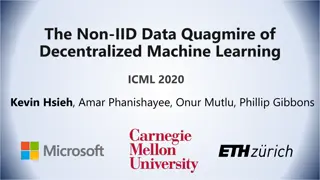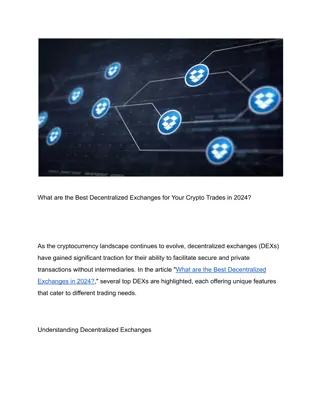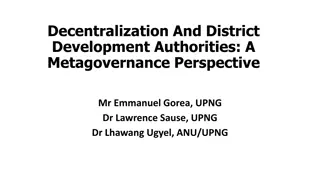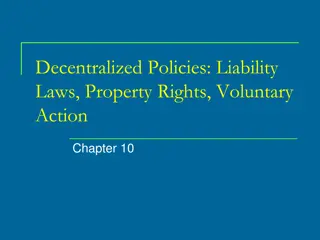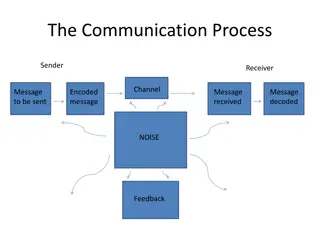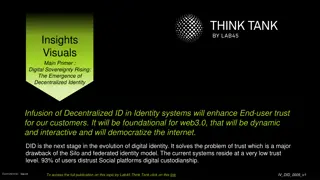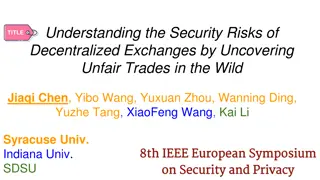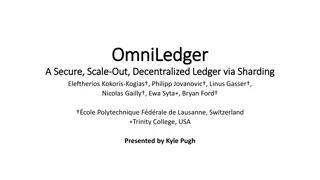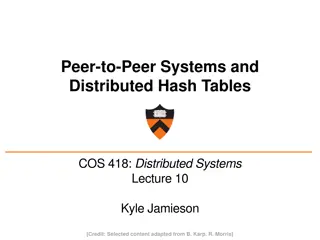Revolutionizing Communication with ENUMER: A Decentralized Approach
Traditional telephone systems rely on a chain of PSTN providers for call routing, leading to issues such as multiple re-codings and extra fees. ENUMER, a decentralized version of ENUM, offers a faster, more reliable, and cost-effective solution by allowing direct paths from buyer's PBX to seller, bypassing the traditional network. While ENUM faced challenges due to proprietary rules and centralized resolving, ENUMER overcomes these limitations with blockchain technology, enabling transparent resolving rules, local and instant call connections, and enhanced security features. Embraced by companies like portaone.com and ezuce.com, ENUMER marks a significant advancement in communication systems.
Download Presentation

Please find below an Image/Link to download the presentation.
The content on the website is provided AS IS for your information and personal use only. It may not be sold, licensed, or shared on other websites without obtaining consent from the author.If you encounter any issues during the download, it is possible that the publisher has removed the file from their server.
You are allowed to download the files provided on this website for personal or commercial use, subject to the condition that they are used lawfully. All files are the property of their respective owners.
The content on the website is provided AS IS for your information and personal use only. It may not be sold, licensed, or shared on other websites without obtaining consent from the author.
E N D
Presentation Transcript
How traditional systems work: Via chain of PSTN providers: If buyer s PBX would know direct path to seller: Improve call quality and reliability No multiple re-codings No extra fees That s why was invented ENUM (rfc6116)
ENUM - E.164 NUmber Mapping (rfc6116) a suite of protocols to unify the telephone system with the Internet Address book to find the path to a certain IP PBX by a telephone number serviced by it. Wiki: Telephone_number_mapping In above example above, ENUM works as follows: Seller registers his IP PBX in ENUM server When calling, Buyer s IP PBX makes a query to ENUM server, trying to find a shortcut to Seller s bypassing the PSTN network If shortcut exists, Buyer s PBX uses it. If not, it uses conventional PSTN way and pays landing fees
Why ENUM is not popular? PTSN providers are not interested to publish their shortcuts in ENUM No place to register for individual/business phone owner Non-transparent ENUM resolving rules, depend on proprietary service owner logic Critical dependence on some single provider Bottleneck in a centralized resolver Vulnerability vs service malfunction or attack to DNS infrastructure.
ENUMER - blockchain-based decentralized ENUM Anyone can register his own number Transparent ENUM resolving rules, configurable by PBX owner Decentralized nature, independent from any company or other provider Local and instant resolving - no bottleneck, no dependence of ENUM server health or DNS infrastructure Much better call connection time than through PSTN - ~0.2s vs ~3s Possibility to use HD audio/video codecs and TLS/SRTP, what is unavailable on PSTNs.
Thus ENUMER makes the ENUM system: Fast Reliable Protected Highly scalable (to any extent) Not depend on anybody (cannot be blocked, spoofed, hacked etc.) Transparent algorithm of resolving addresses Configuration through local software No need to add some code to your current PBX software
ENUMER is already used by: www.portaone.com/solutions/blockchain www.portaone.com/success-stories/portaone-emercoin-blockchain ezuce.com/ezuce-emercoin-speed-adoption-blockchain-phone-video-services
More info about ENUMER: bit.ly/ENUMER
One blockchain - lot of services! Someservices beside ENUMER:
http://bit.ly/ENUMER Meet us 4-5 May at chainges.co, Amsterdam


